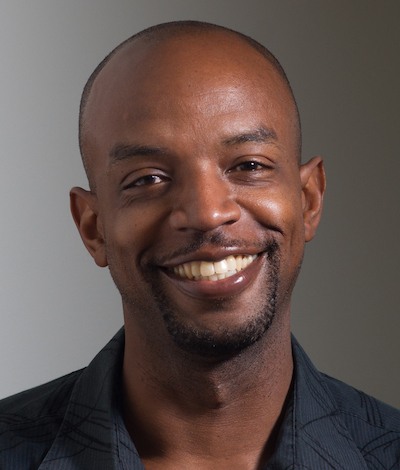MACON/ATLANTA – As part of the ongoing commemoration of the 50th anniversary of its integration, and leading up to the national observance of Martin Luther King Jr. Day on Jan. 20, Mercer University will welcome Dr. Reggie Williams, assistant professor of Christian ethics at McCormick Theological Seminary in Chicago, for three events, Jan. 13-14. These events, which will take place on the Macon and Atlanta campuses, are co-sponsored by the James and Carolyn McAfee School of Theology, the Center for Theology and Public Life, the Office of Student Affairs in Macon and Atlanta, and the Mercer Lyceum, which is organizing events this year under the theme “Racial Justice in America: Where Are We Now?”
“Reggie Williams has done groundbreaking research on the providential intersection of Dietrich Bonhoeffer with the Harlem Renaissance and the black church when he studied in New York in 1930-31. He is also emerging as a leading thinker related to how Christians need to engage race and racism in the 21st century context. I am excited about the enriching opportunities he will bring to the Mercer community,” said Dr. David Gushee, Distinguished University Professor of Christian Ethics and director of the Center for Theology and Public Life at Mercer.
Dr. Williams and Dr. Gushee will participate in a panel discussion, titled “MLK, Religion and Race in America: Then and Now,” on Monday, Jan. 13, 7:30-9 p.m., in the Medical School Auditorium in Macon. This student-oriented event will consider Dr. King in his context with special attention to intersections of race and religion, and then consider those same issues 50 years later.
The following day, Dr. Williams will deliver a lecture, titled “Bonhoeffer's Black Jesus,” at 10:45 a.m., in the McAfee School of Theology Chapel on the Cecil B. Day campus in Atlanta. Dr. Williams will discuss how German theologian Dietrich Bonhoeffer's one year of study at Union Seminary, on the edge of Harlem, N.Y., opened his eyes to the black experience and the black church tradition, which had profound consequences for his theology and ethics when he returned to Germany.
Following the lecture, Dr. Williams will offer a lecture over lunch, beginning at 12 p.m. in the Trustees Dining Room, titled “Martin Luther King and the Viral Myth of Race.” There, Dr. Williams will address Dr. King's effort to confront racist myths with Christian and constitutional values. Lunch will be provided free for the first 100 students.
Prior to joining the faculty at McCormick in 2012, Dr. Williams taught ethics at Baylor University in Waco, Texas, and practical theology at Azusa Pacific University in Azusa, Calif. He earned his bachelor's degree in religious studies from Westmont College in 1995, and went on to earn both his master's and his Ph.D. in Christian ethics from Fuller Theological Seminary in 2006 and 2011, respectively.
Dr. Williams' research primarily focuses on Christological hermeneutics and Christian morality. He has a particular interest in how the Western understanding of Christianity has been calibrated to a false ideal that corresponds with racial interpretations of humanity, morality and Jesus. His current projects include an analysis of the developments within Bonhoeffer's theology and ethics as a result of his experience in the Harlem Renaissance.
For more about the University's commemoration of the 50th anniversary of its integration, visit 50th.mercer.edu.
About the Mercer Lyceum
The Mercer Lyceum, “where civil discussions happen in an uncivil society,” is an effort to help coordinate existing University lectures and events, as well as new ones, around a single theme. The Lyceum allows for more in-depth discussions, and, organizers hope, more in-depth learning, while helping to create new partnerships among the many disciplines and schools on Mercer's campuses. The Lyceum has been approved for four years, including two biennial cycles focusing on a single theme. The first theme was “Rebuilding Democracy” and ran from fall 2011 to spring 2013. The current theme is “Racial Justice in America: Where Are We Now?” and began in fall 2013.










